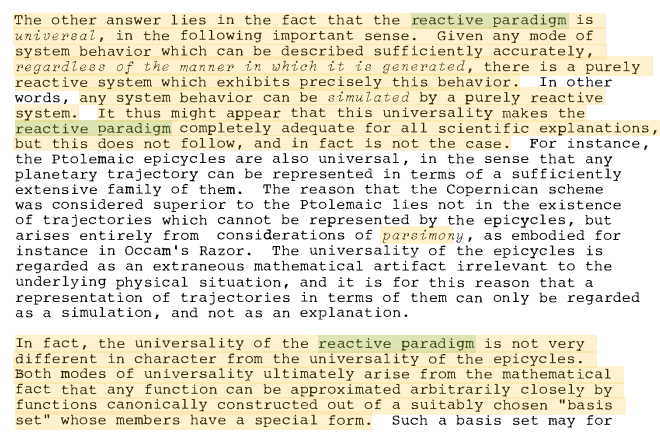Re-reading some of Robert Rosen's musings on the "reactive paradigm". It's striking how much this applies to LLMs and other simulators of intelligent humans reacting to "prompts". Thinking about it: Skinner is back. Believe in LLMs is Behaviorism at its best.
#RobertRosen #ai#ReactiveParadigm #blackbox #behaviorism
Discussion
Loading...
Post
@tg9541 The comparison to geocentric epicycles vs. heliocentric ellipses is (1) very appropriate and (2) discouraging for me, considering how often I have tried in vain to explain to people that epicycles are not wrong but simply less useful than heliocentric ellipses.
I also found that pointing out that epicycles are just data science (https://blog.khinsen.net/posts/2017/12/19/data-science-in-ancient-greece.html) doesn't please modern-day data scientists.
Open Science
We are a network of scientists, developers and organizations building the next generation of digital spaces for open science.
Automatic federation enabled
